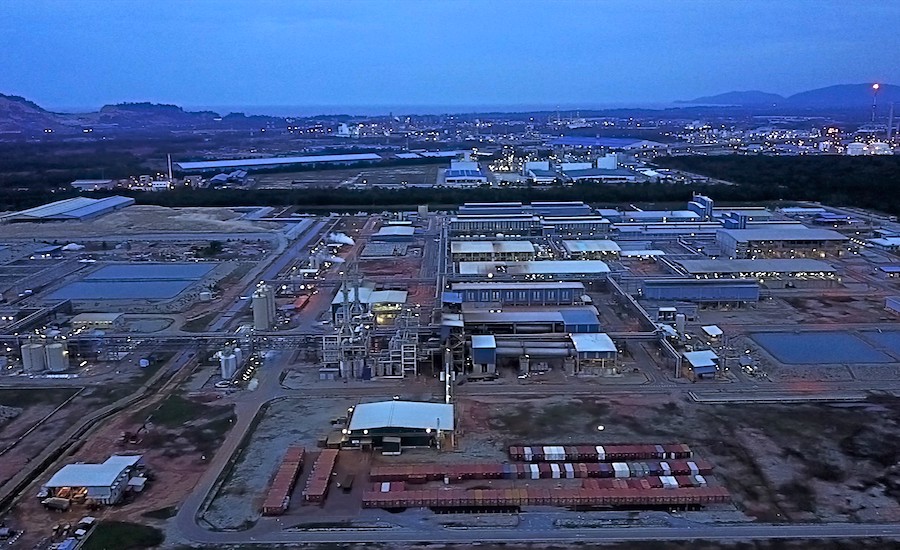Malaysia govt ‘pleased’ with rare earths firm Lynas’ plans to move initial ore processing — CEO

KUALA LUMPUR – The chief executive of Australian rare earth metals producer Lynas Corp said on Friday that feedback from the Malaysian government relating to its plans to move initial ore processes out of the Southeast Asian nation has been favourable.
In a strategic growth plan to 2025 unveiled last Tuesday, Lynas said it intends to build an initial ore processing plant in Western Australia that would help it overcome political headwinds in Malaysia. The operating licence for Lynas’ processing plant in the country, due for renewal in September, is under threat on concerns over waste disposal.
“The feedback is that the government is particularly pleased with what we are looking at in terms of the shift of cracking and leaching (to Australia),” Amanda Lacaze, chief executive officer told Reuters in a telephone interview, referring to processes involved in initial ore extraction.
Malaysian Prime Minister Mahathir Mohamad said that Lynas or any other company will need to clean raw materials coming to Malaysia in order to operate in the country
The company, which is the world’s only proven producer of rare earths outside of China, on Tuesday said it would spend A$500 million ($346 million) in a plan designed to boost production, placate Malaysian regulators and at the same time help Lynas fend off a $1.1 billion takeover attempt by Australia’s Wesfarmers Ltd.
The strategic growth plan is contingent on Lynas securing renewal for its Malaysian license.
Rare earths are used in everything from consumer electronics to military equipment. As Sino-U.S. trade tensions mount, concerns that supplies of rare earths could be disrupted are rising too.
Malaysian Prime Minister Mahathir Mohamad had said in April that Lynas or any other company will need to clean raw materials coming to Malaysia in order to operate in the country.
Lynas CEO Lacaze said the company has also submitted a proposal with two options for clearing out its current waste in Malaysia, which will require the approvals of the energy and environmental ministry.
Lynas said it could reuse the waste by processing it into a soil enhancer, as well as storing the waste in a permanent disposal facility.
“We have done the work to identify how the residue can be reused,” Lacaze said. “We have done the work to identify how and where we would construct a permanent disposal facility.”
Malaysia’s energy and environmental ministry did not immediately respond to a request for comment on the expansion plans set out by Lynas this week.
(Reporting by Liz Lee; Editing by Kenneth Maxwell)
{{ commodity.name }}
{{ post.title }}
{{ post.date }}




Comments